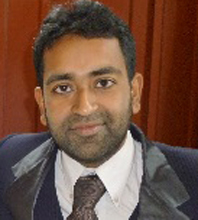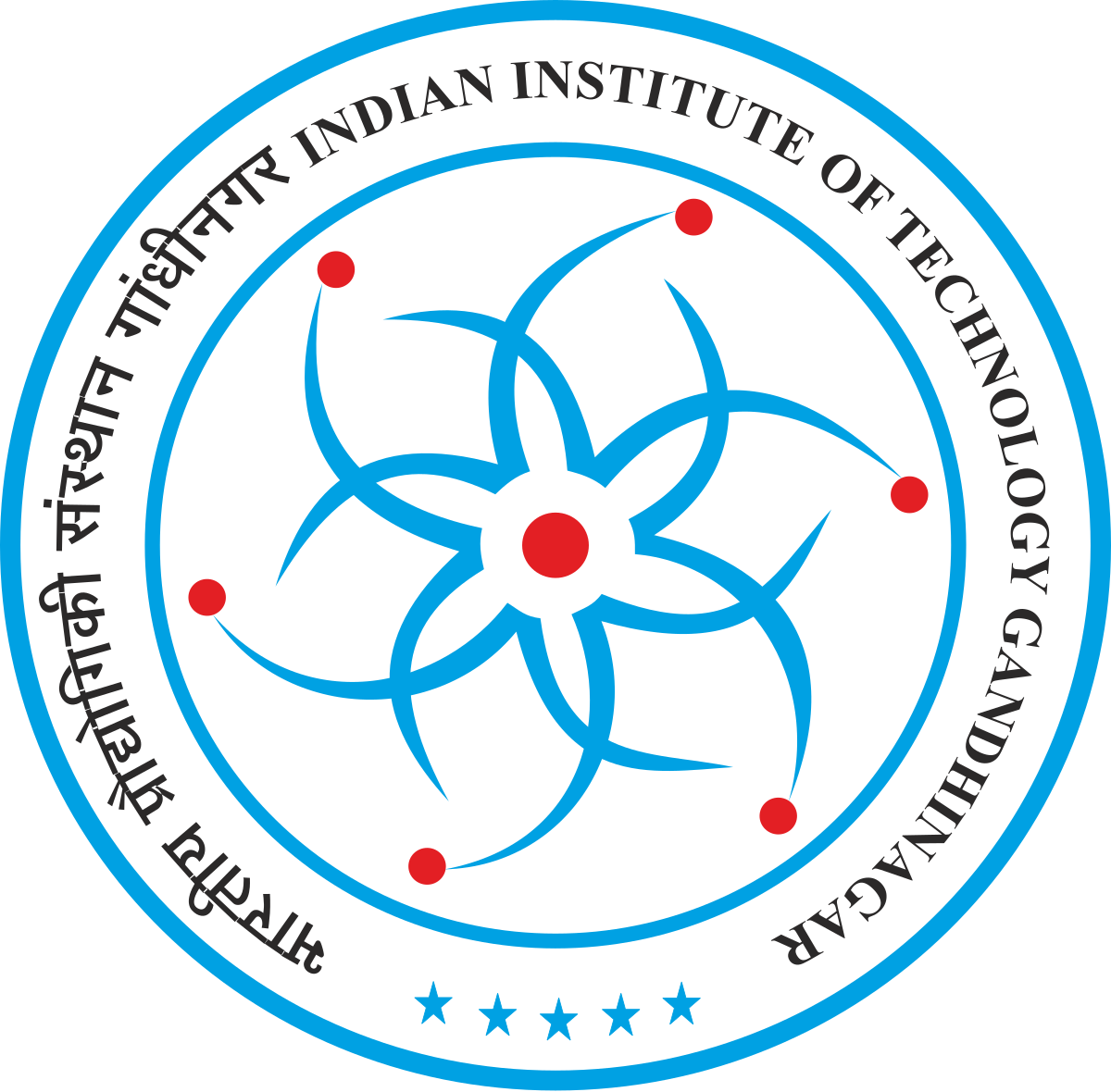Sponsored by Wireless World Research Forum (WWRF)
Panel Chair and Panelists
Dr. Seshadri Mohan, University of Arkansas at Little Rock, sxmohan@ualr.edu
Prof. Dr.-Ing. Klaus David, University of Kassel, Germany, david@uni-kassel.de
Dr. Burak Kantarci, University of Ottawa, ON, Canada,Burak.Kantarci@uottawa.ca
Dr. Bhavani Shankar, University of Luxemborg, Bhavani.Shankar@uni.lu
Dr. Pradipta Biswas, IISc, pradipta@iisc.ac.in
Biography of Panel Chair
PANEL CHAIR: Dr. Seshadri Mohan is currently a professor in Systems Engineering Department at University of Arkansas at Little Rock, where, from August 2004 to June 2013, he served as the Chair of the Department of Systems Engineering. Prior to the current position he served as the Chief Technology Officer (CTO) and Acting CEO of IP SerVoniX, where he consulted for several telecommunication firms and venture firms, and served as the CTO of Telsima (formerly known as Kinera). Besides these positions, his industry experience spans a decade at New Jersey-based Telcordia (formerly Bellcore) and Bell Laboratories. Prior to joining Telcordia, he was an associate professor at Clarkson and Wayne State Universities. He has authored/coauthored over 150 publications in the form of books, patents, and papers in refereed journals and conference proceedings with citations to his publications in excess of 6670. He is the inventor of 15 inventions with US and international patents. He has co-authored the textbook Source and Channel Coding: An Algorithmic Approach. He has also served as a Guest Editor for several Special issues of IEEE Network, IEEE Communications Magazine, ACM MONET and Wireless Personal Communications. In April 2011, he was awarded the 2010 IEEE Region 5 Outstanding Engineering Educator Award. He received the best paper award for the paper “A Multi-Path Routing Scheme for GMPLS-Controlled WDM Networks,” presented at the 4th IEEE Advanced Networks and Telecommunications Systems conference. He is a co-founder of the startup IntelliNexus, LLC. He holds a Ph.D. degree in electrical and computer engineering from McMaster University, Canada, the Master’s degree in electrical engineering from the Indian Institute of Technology, Kanpur, India, and the Bachelor’s degree in Electronics and Telecommunications from the University of Madras, India.
Biography of Panelists
Dr. Klaus David (david@uni-kassel.de) is a full university professor and head of communication technology at Kassel University, Germany. His research interests include mobile networks, applications, and context awareness, and AI. He has 12 years of industrial experience in major companies like HP, Bell Northern Research, IMEC, T-Mobile (as Head of Group and UMTS project leader) and IHP (as Head of Department), with in total five years of international experience in the UK, Belgium, USA, and Japan. He has published over 200 scientific articles, including 3 books, and has registered over 10 patents. He is active in IEEE (Editor in Chief IEEE VT Magazine 2015 – 2018, BoG 2015 – 2017 IEEE VT), WWRF (Wireless World Research Forum) as publication manager and elected SB Member and he is involved in many conferences, such as IST Future Network & Mobile Summit 2012 Berlin as TPC chair or 2013, 14, 15,16 and 18 in IEEE PerCom as TPC member, or General Chair IEEE PerCom 2021. Also, he is a regular technology and strategy consultant to industry as well as co-founder of two start-up companies.
Dr. Burak Kantarci is an Associate Professor and the Founding Director of Smart Connected Vehicles Innovation Centre (SCVIC), and the Founding Director of the Next Generation Communications and Computing Networks (NEXTCON) Research Lab, University of Ottawa. He received the Ph.D degree in computer engineering from I.T.U in 2009. He has coauthored over 200 publications in established journals and conferences, and 15 book chapters. He is well known for his contributions to the quantification of data trustworthiness in mobile crowd-sensing (MCS) systems, and game theoretic incentives to promote user participation in MCS campaigns with high value data; as well as AI-backed access control, authentication and machine learning-backed intrusion detection solutions in sensing environments. He has been awarded a Best Paper Award in IEEE GLOBECOM 2021. In 2022, he has been awarded a Minister’s Award of Excellence in Innovation and Entrepreneurship from Ontario Ministry of Colleges and Universities. He served as the Chair of IEEE Communications Systems Integration and Modeling Technical Committee, and has served as the Technical Program Co-Chair/Symposium Co-chair of more than twenty international conferences/symposia/workshops, including IEEE Global Communications Conference (GLOBECOM)—Communications Systems QoS, Reliability and Modeling (CQRM) symposium. In 2021, he has been elected as the new Secretary of IEEE Social Networks Technical Committee. He is an Editor of the IEEE Communications Surveys & Tutorials, IEEE Internet of Things Journal, Vehicular Communications (Elsevier), and an Associate Editor for IEEE Networking Letters, and Journal of Cybersecurity and Privacy. He is Editor for several IEEE and Elsevier journals. He was an ACM Distinguished Speaker in 2019-2021, currently an IEEE Senior Member and ACM Senior Member. He is IEEE Systems Council Distinguished Lecturer.
Dr. Bhavani Shankar is currently a Research Scientist at SnT since 2009. He was with Beceem Communications, Bangalore from 2006 to 2007 as a Staff Design Engineer working on Physical Layer algorithms for WiMAX compliant chipsets. He was a visiting student at the Communication Theory Group, ETH Zurich, headed by Prof. Helmut Bölcskei during 2004. Prior to joining Ph. D, he worked on Audio Coding algorithms in Sasken Communications, Bangalore as a Design Engineer from 2000 to 2001. His research interests include Design and Optimization of MIMO Communication Systems, Automotive Radar and Array Processing, polynomial signal processing, Satellite communication systems, Resource Allocation, Game Theory and Fast Algorithms for Structured Matrices. He is currently on the Executive Committee of the IEEE Benelux joint chapter on communications and vehicular technology and serves as handling editor for Elsevier Signal Processing. He was a co-recipient of the 2014 Distinguished Contributions to Satellite Communications Award, from the Satellite and Space Communications Technical Committee of the IEEE Communications Society. He received Masters and Ph. D in Electrical Communication Engineering from Indian Institute of Science, Bangalore in 2000 and 2007 respectively. He was a Post Doc at the ACCESS Linnaeus Centre, Signal Processing Lab, Royal Institute of Technology (KTH), Sweden from 2007 to September 2009.
Dr. Pradipta Biswas is an Associate Professor at the Centre for Product Design and Manufacturing of Indian Institute of Science and co-chair of Study Group 9 at the International Telecommunication Union. His research focuses on user modelling and multimodal human–machine interaction for aviation and automotive environments and for assistive technology. Earlier, he was a senior research associate in the Engineering Department, a research fellow at Wolfson College, and a research associate at Trinity Hall of the University of Cambridge. He completed his PhD in Computer Science at the Rainbow Group of the University of Cambridge Computer Laboratory and Trinity College in 2010 and was awarded a Gates Cambridge Scholarship in 2006.
















